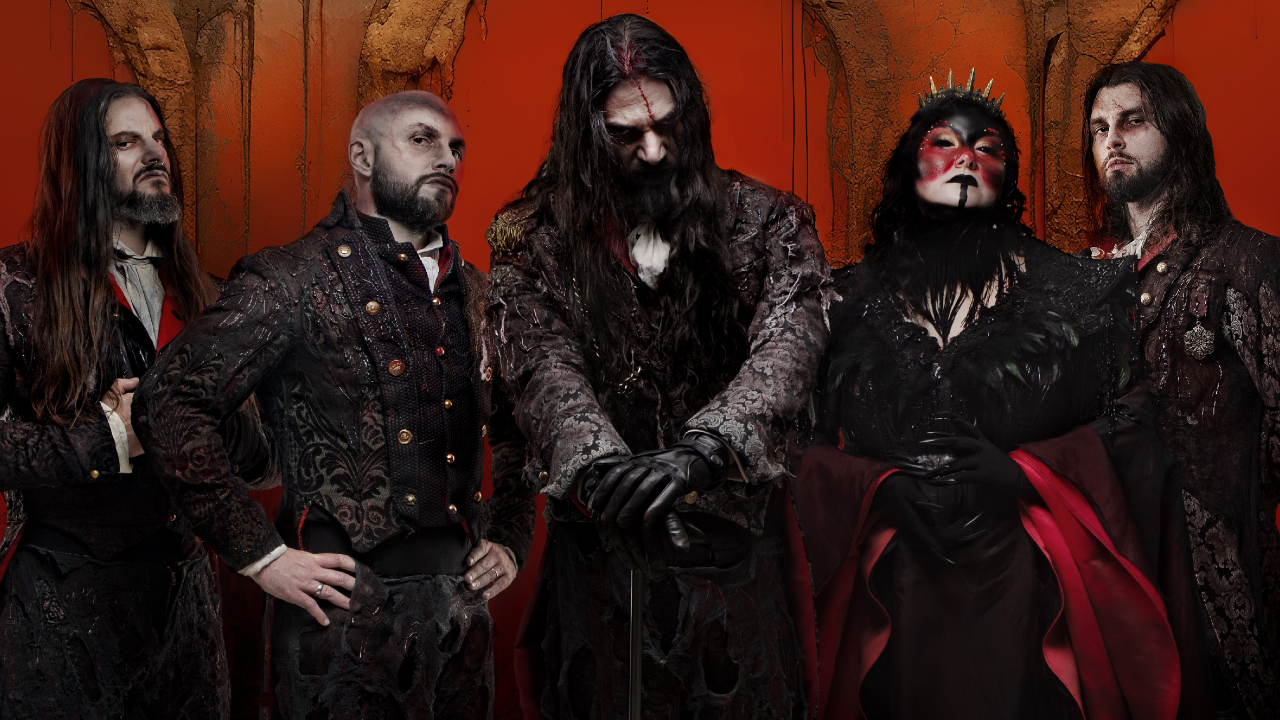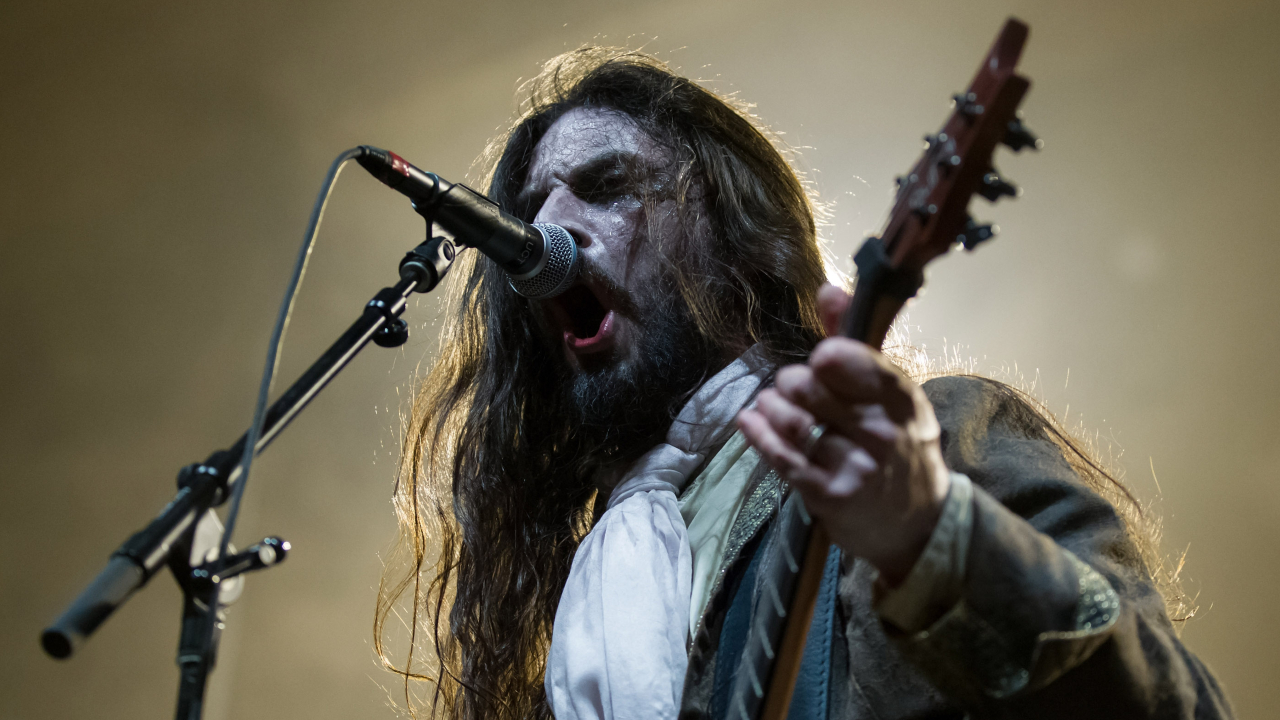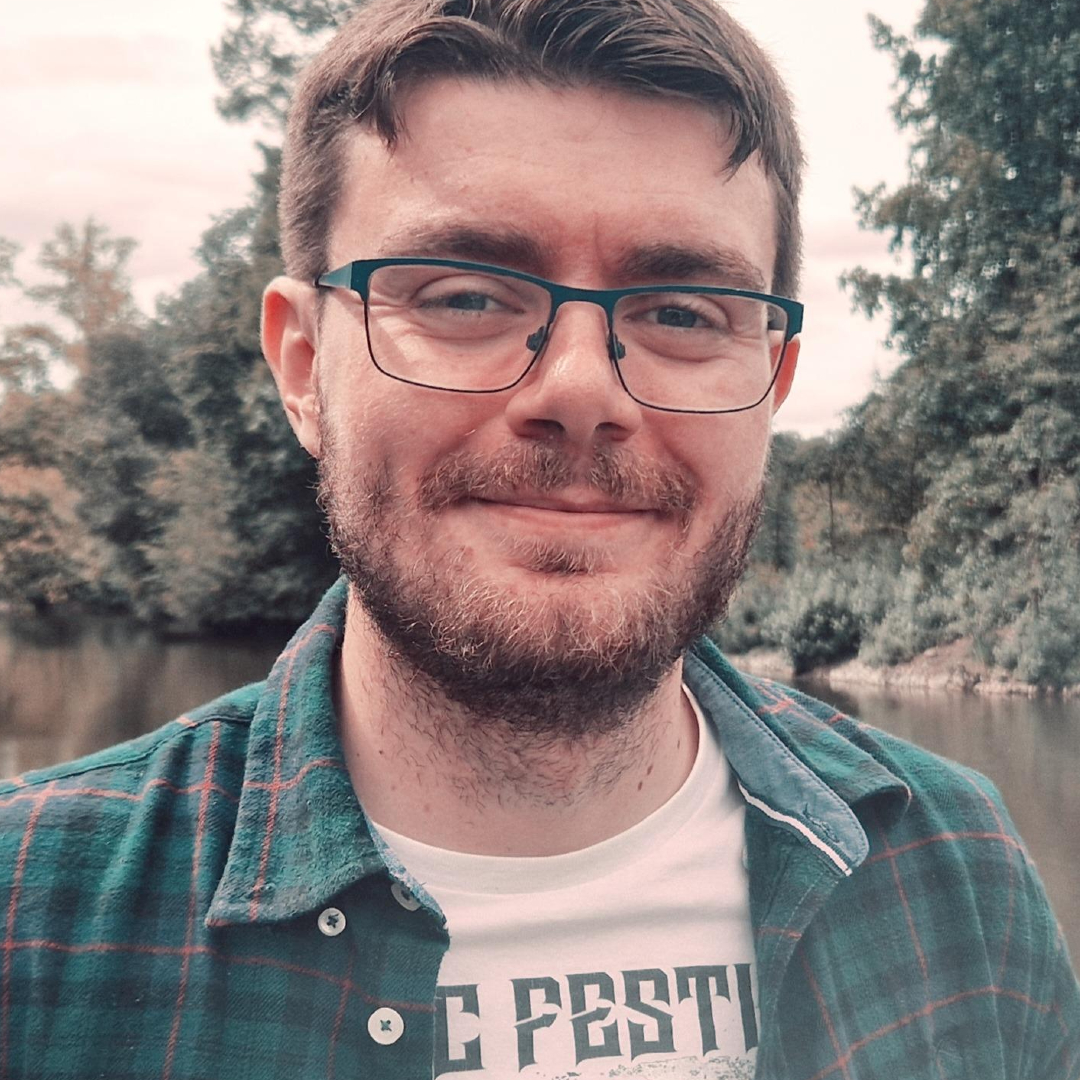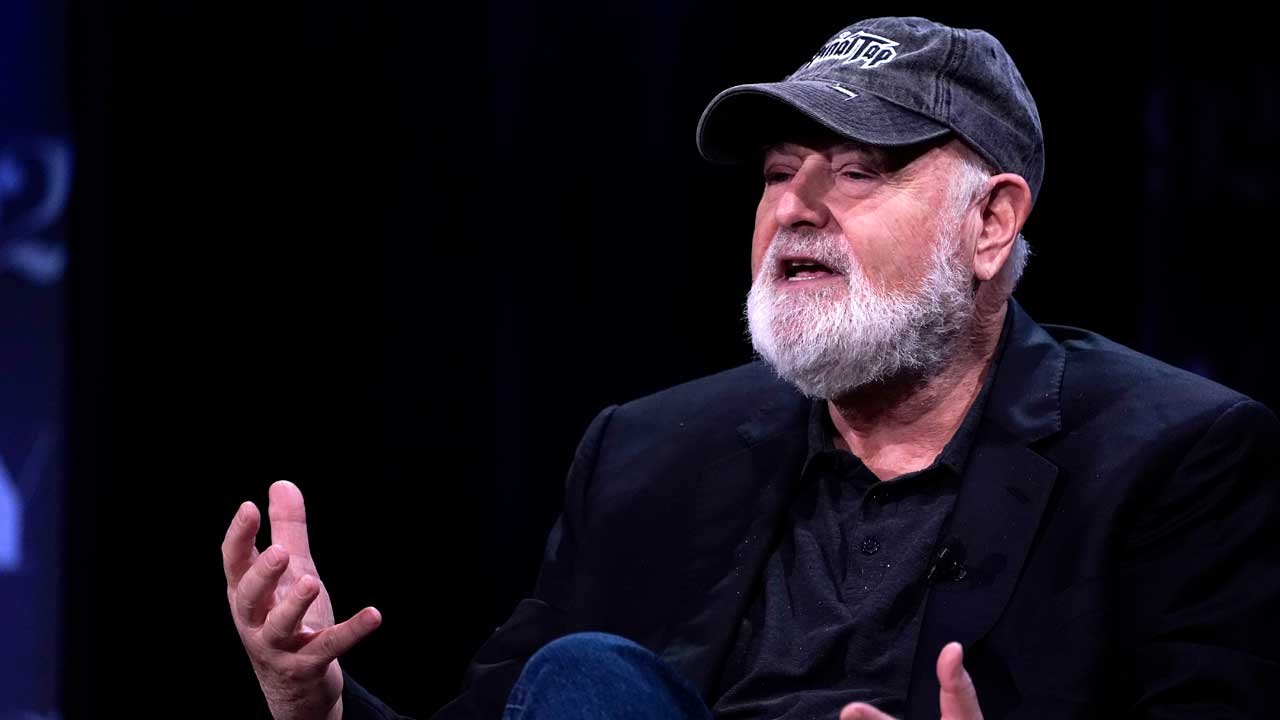“My doctors wanted to cut my arm off”: How Fleshgod Apocalypse turned a near-fatal accident into symphonic death metal magnum opus Opera
In 2021, Fleshgod Apocalypse leader Francesco Paoli fell in a horrific climbing accident. The singer/bassist explains how he overcame broken bones, internal bleeding and the threat of an amputated arm to make the extreme metal mavens’ poignant sixth album.

“We’ve never received this level of press coverage before,” an audibly excited Francesco Paoli says after joining a Zoom call with Metal Hammer, in the middle of a stacked day of interviews. “I’ve spoken to ’zines, blogs, vlogs, Instagrammers, Youtubers… They’re looking to spread the word as much as possible, and it’s so amazing!”
It’s easy to see where the boosted interest in talking to the Fleshgod Apocalypse leader has come from. Three years ago, the singer/bassist, who founded his band in 2007, slipped while mountain-climbing near his home in Spoleto, Italy. The accident gave him a host of potentially life-changing injuries, including dozens of fractured or broken bones, internal bleeding, and nerve damage in his left arm. At one point, doctors considered amputating that arm just below the shoulder.
Francesco was able to make a near-total recovery, but he still sports some wounds from his ordeal. He has a prosthetic elbow. He shows Hammer a scar that runs up the length of his arm, caused by the nerve transfer surgery he underwent to restore feeling in his hand. He reveals another from the fall itself in his skull, usually hidden by his thick black hair.
The musician bears the psychological impact of the accident on Fleshgod Apocalypse’s new, sixth album, Opera. Though still heavy as sin, the record pulls the band back from their usually frantic symphonic death metal ways to tell a more nuanced, emotional story about Francesco’s fall and recuperation. Below, the frontman talks all about the new music, as well as the near-death journey he endured to be able to make it.

What happened when you fell in 2021?
“I was rock climbing on a very old, very nice route, not far from here. My friends invited me to go and, while we were climbing, one bolt [connecting Francesco’s ropes to the mountain] broke and I fell. Since this route wasn’t super tough, there wasn’t much protection. The last bolt was a few metres below me. The first part of the fall was about five metres, and I just destroyed myself, and then the rest was luckily into the void. If it was all rocks, I would have been dead. I dangled from a nose-like shape in the rock for an hour and a half until the helicopter came and rescued me.”
Were you conscious while you were dangling?
Sign up below to get the latest from Metal Hammer, plus exclusive special offers, direct to your inbox!
“I wasn’t conscious for something like 15 or 20 minutes, then I woke up.”
I thought I was going to die twice.
What’s your reaction when you wake up to find yourself dangling off a cliff?
“I was crying, totally in chaos. I figured out that my left arm was broken so I took that arm and then put it like a scarf around my neck. My right leg and foot were fucked up as well, so I tried to figure out how to stabilise myself in a way where I couldn’t feel that pain. Adrenaline was just, like, blasting me. I figured out that my harness was slipping away, because I was upside-down at that moment. I used some carabiners to make a ‘saver harness’ that let me stay without slipping, even if I fainted again.
“I realised that I was losing blood, but not how much, because my clothes were waterproof and therefore blood-proof. I was mostly losing blood from my heart. But, I could move my legs, so I thought, ‘OK, maybe it’s not that bad.’ I realised how bad it was at the hospital. They X-rayed me and I had something like 25 fractures, and my arm and elbow exploded completely. They had to replace it with a prosthetic.”
The song Bloodclock describes visions of your son digging your grave, which you had while dangling there. Is that literal?
“Yeah, man. Sometimes you lose memories of things, even looking back on my career, but for that accident, reliving it is like watching a fucking movie. I had all these visions, everything flashing before my eyes: my mother, my wife, my son. I remember them all and could tell you the order. I remember perfectly up to when I got to the hospital, when I entered this delirium from the morphine, pain and lack of sleep.”
Did you ever think you were going to die?
“Twice. The first time, physically, when I went to hospital and the doctor realised how bad it was. I’d lost a shitload of blood. I’ve been told that I was very close to dying because of loss of blood.
“The second time I nearly died was mentally, when they said they couldn’t do any proper surgeries for my injuries, especially my arm. They wanted to just cut it off at first. But, then they found an incredible surgeon in Bologna that could handle it and I was transferred. They rebuilt my elbow in 12 hours and they did great! I lost the use of one nerve, and you have three nerves in your arm, so I lost sensitivity in about half my arm and about 70 percent of my movement in my left hand.”
And you still played bass on the new album?!
“I also played some guitar. I figured out a different tuning, basically a drop tuning, that still let me do it. But most of the songwriting I actually did without an instrument. I just started singing it.”
When did you start writing Opera?
“We started immediately after I was discharged. I came home and – with our piano player [Francesco Ferrini], who’s been my songwriting partner since the early days – took some stuff from my studio to my bedroom upstairs. We made a temporary studio in my bedroom. It was a mess, because I was bedridden at first, then in a wheelchair, but we didn’t want to lose the mood and the atmosphere. In a way we felt like shit, but in a way we felt relieved, because we knew this stuff would be tremendously heavy for people.”

There’s a song called Matricide 8.21, where you apologise to your mum…
“You know what, everybody talks about that song. It’s a special song, but it’s about the sense of guilt. When you fuck up so much that you almost lose your life, you basically kill your mother as well as yourself. I’m a father and I cannot imagine if something happened to my son. I’d die with him. So, when I saw my mother coming to the hospital crying like crazy, I felt like shit. I killed her.
“I wanted to write her a song that was both an apology and a song of rationality. I wanted to apologise for my mistakes, but it was an unfortunate thing that happened. I wanted to explain that I did everything right [leading up to the accident] and I should be able to forgive myself for what I’ve done.”
I was the only person walking in and out of the hospital, but everybody else was happier than me.
Did you need to convince yourself to make music again after the accident?
“The biggest battle was mental, not physical. You cannot heal without willpower and willpower comes from your own mind. Writing about my accident was part of the healing process. Sharing my weaknesses and fragilities helped me start this process of acceptance. Sharing these things helped me, in a way, get the right support and led me to full recovery.”
Opera is the story of the last three years, so does the last song, Till Death Do Us Part, bring us to where you are now?
“It’s a description of my days in hospital. Veronica [Bordacchini, soprano singer] embodies hope. It’s a dialogue with hope. In the end, the whole meaning of the album is not losing hope, because things are fixable. Everything is fixable. That’s what I learned in hospital, especially towards the end, when I was going in and out of the neurologist’s. I was the only one walking in and out of there but everybody else was happier than me. Somebody told me, ‘The only thing that matters is the way you react to what happens in your life.’
“I learned how stupid I was. I’ve never been a selfish guy, but you can always improve. The accident made me a better man, a better husband, a better human being, and now I understand how small my problems are compared to the rest of the world’s.”
Opera is out now via Nuclear Blast Records. Fleshgod Apocalypse will co-headline a North American tour with Shadow Of Intent in the autumn.

Louder’s resident Gojira obsessive was still at uni when he joined the team in 2017. Since then, Matt’s become a regular in Metal Hammer and Prog, at his happiest when interviewing the most forward-thinking artists heavy music can muster. He’s got bylines in The Guardian, The Telegraph, The Independent, NME and many others, too. When he’s not writing, you’ll probably find him skydiving, scuba diving or coasteering.

